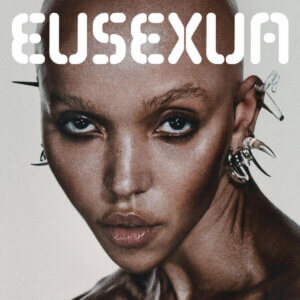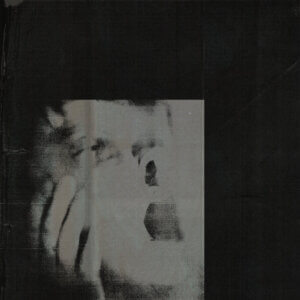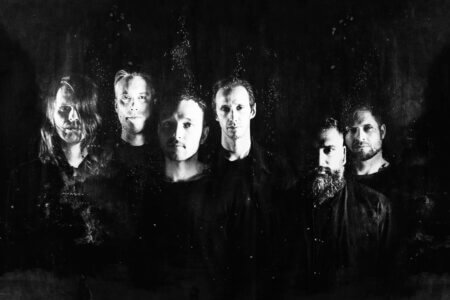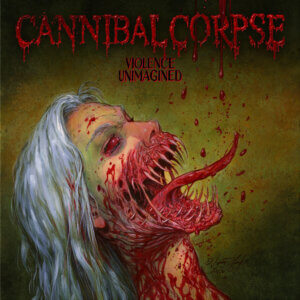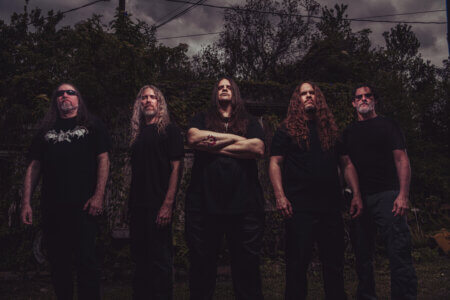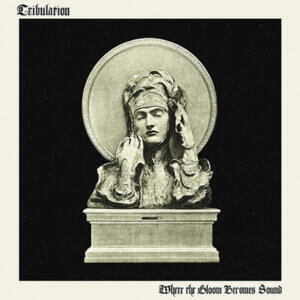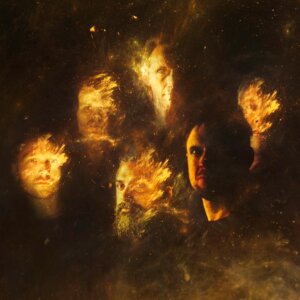New Blood For Cannibal Corpse
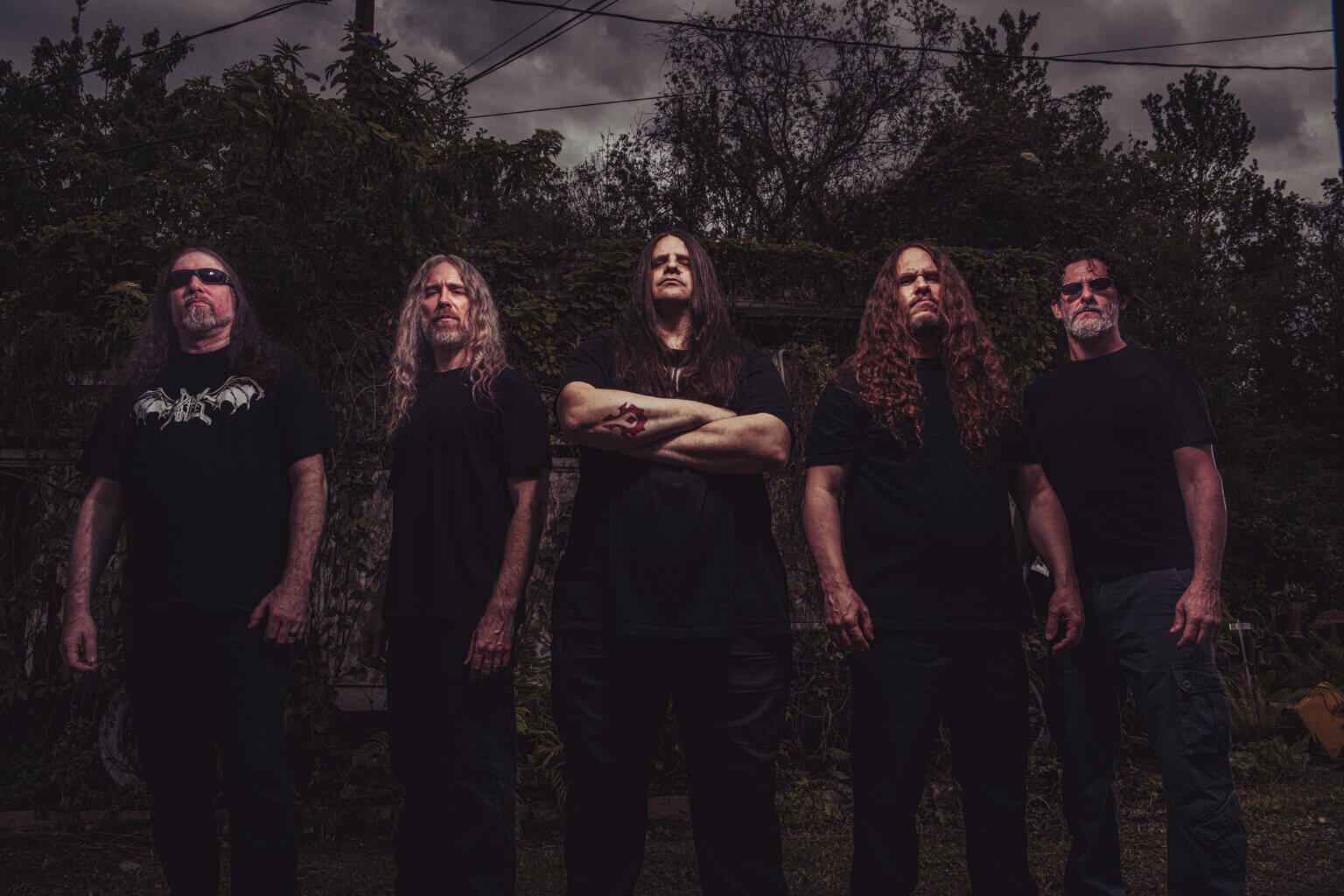
Cannibal Corpse will release their 15th album Violence Unimagined April 16th on their longtime label home Metal Blade Records. It’s the first to feature guitarist Erik Rutan (Hate Eternal, Morbid Angel, Ripping Corpse) who also produced the album. Some of Rutan’s previous studio work includes Morbid Angel, Tombs, and Malevolent Creation to name but a few along with four previous albums by Cannibal Corpse. I had a chance to speak to founding member and bassist Alex Webster about working with Rutan, their songwriting process, and some of the longtime influences of the band.
NT: I just wanted to start by saying congrats on making yet another killer album. You guys have one of the most consistent and powerful discographies in all of death metal as far as I’m concerned.
AW: Thanks. We’re trying, consistency is important to us. We always have tried to make each new album the best one we’ve ever done, whether or not we succeeded, that’s up to people to decide, but we definitely try.
NT: I was excited to hear that Erik Rutan had joined the band. Was the dynamic working with Erik on this record any different now that he’s not just the producer but also a band member?
AW: A little bit, and maybe in ways that you might not immediately guess. For example, Mana Studios is his studio so when we were getting ready for this album (drummer) Paul (Mazurkiewicz) was able to go over there and work with Erik in the studio on pre-production demos and things like that, where normally we have an eight-track recorder that we use in the practice room, and we would just record not so great sounding demos up there. But being able to record in the studio that you’re actually going to do the album in did give an extra advantage to Paul this time. So there’s that and of course, a big difference is now Erik’s the guitar player in the band, in addition to being the producer, so he’s wearing a lot of hats. That might have concerned us if it wasn’t Erik, but because Erik has already done that in Hate Eternal for a bunch of albums he’s very capable of taking on multiple responsibilities at once. Erik is a super hard-working guy. So there were differences, but they were positive differences.
NT: Erik’s songwriting in Hate Eternal and Morbid Angel is quite a bit different from what you guys have done with Cannibal Corpse. Did you have any concerns at all about his compositions not fitting into your style?
AW: You know, we figured it would work because Erik knows so much about Cannibal Corpse. He knows what we do and what we don’t do. So I don’t think he was gonna come into the band like hey, here’s three songs and they all sound like Hate Eternal you know what I mean? They sound like Cannibal Corpse songs that were written by Erik Rutan. The three songs that he did don’t sound like Hate Eternal songs that have been morphed into Cannibal Corpse songs. He knows how to keep the two styles separate and he’s just such a good addition to the band, a total pro on all levels. Songwriting-wise, he did a great job. I can tell which ones he wrote. I know his style, and especially if you listen to Hate Eternal and Morbid Angel a lot. I think you could probably pick out the three that he did. Do you want to take a guess?
NT: I was gonna ask you if you don’t mind because I don’t know, but the first one I thought that I heard riffing that sounded like his was Ritual Annihilation.
AW: Yep, you got that one right. That’s one of the three. I don’t know if you want to try guessing the other two.
NT: I couldn’t even honestly, but my second choice was Follow the Blood.
AW: That’s actually one of Rob’s (Barrett) songs. So that just shows you how Erik was able to fit in without it being obvious. He has his own style but he was able to integrate it into Cannibal Corpse. He knows the band inside and out having done so many albums with us. He just knows what we do so the songs he wrote fit really well.
NT: You and Erik have known each other for a long time. Was there ever a time in the past when the band changed guitar players that he came up as a possible new member?
AW: Actually yeah, back when Rob Barrett quit the band in I think ’97, and before we got Pat (O’Brien) to join, we had talked to Erik about it but the time was not right. I can’t remember the exact reasons, it would be better for Erik to answer that question, but it had been discussed. Of course I had been working with him on things around that time. I played bass on some of the Alas demos, his melodic sideband. I played bass on the first Hate Eternal album and even wrote a song for that on the demo. Then later, I played on another one of their albums, Fury & Flames. So we’ve worked together a lot but we actually talked to him about joining and it just didn’t seem like the time was right back then in the 90s. But this time it is. I think we’d asked him to fill in when Jack Owen quit too. He was also busy then in 2004. So we got Jeremy Turner to fill in from Origin and then, after the tours, Rob Barrett rejoined. So that’s how it all went but anytime we had a guitar situation going on, he was a top person we asked, and I guess the third time’s the charm.
NT: You are well known as one of the best bass players in death metal. After thirty-plus years of bass playing and composing material for Cannibal Corpse which do you find more rewarding or challenging, improving your technique or songwriting?
AW: It’s still both, you can continue to find things about your technique that could be better throughout your life. That’s the one thing I’ve discovered over the years that I might not have realized at first. There are things I don’t feel like I’ve got mastered. There’s a lot left to learn and there are things that can be refined with the way I’ve played throughout the years. So I still do work on technique, but writing is the primary thing I’m thinking about with Cannibal Corpse. I’m not trying to necessarily write something super hard to put into a Cannibal Corpse song just because it’s hard. I’m trying to write the heaviest, best songs I can, and some of those turn out to be hard to play but that’s not the initial goal. The goal is to make a super heavy killer song and if it happens to be hard to play, that’s fine.
NT: I think some death metal bands forget that. Technical doesn’t mean good as far as songwriting is concerned.
AW: Yeah, I think when you look at the history of death metal and thrash too in the very beginnings in the 80s, there was a lot of sloppy kind of playing going on, and the entire scene developed as musicians over time. As bands got better I think there sort of was a focus on “well this band is better because they can play better” but now it should go without saying that everybody who’s playing in a good death metal band is a good musician, and should have nothing to prove. What we really should be trying to accomplish, in my opinion, is making awesome songs, you know, just awesome, heavy, catchy songs and you’re gonna need a good skill level to execute them. But showing off your skill level isn’t really the primary objective here.
NT: I would even say for me personally when I listen to an album like Pleasure to Kill (Kreator) for instance, the guitar playing is kind of sloppy, but that almost adds to the charm of it. You know what I mean? Like there’s something out of control and cool about that. I can tell you I was 15 when (Cannibal Corpse’s debut album) Eaten Back to Life came out and it was probably one of the first death metal albums I bought. I remember buying that cassette and I’d never heard you guys… I bought it because of the album cover. I think early on you established your own sound. That riff in Skull Full of Maggots has this out-of-control kind of feel. I miss those days of taking a chance at the record store and it seemed like all the death metal bands back then really had their own sound. I think that’s one of the reasons that Cannibal Corpse is such an important band for death metal.
AW: Well, thanks. When you make a band, a lot of the time you just kind of stumble upon your own sound. Like, we were inspired by a bunch of our favourite bands and it all turns into a sort of a mishmash of our own and somehow it becomes your own style. You know, we were listening to bands like Kreator. Pleasure to Kill was a huge influence on early Cannibal Corpse and same thing like those kinds of thrash bands that were sort of singing about the same kind of things that death metal bands did. We liked Death and Morbid Angel, then we were also really into Dark Angel, Kreator, Sodom, and bands like that. We even liked some other stuff, like our original guitar player, Bob (Rusay) loved The Accused and D.R.I. so that was mixing in a little bit too. So there were a lot of early influences and somehow we kind of happened upon something a little bit unique and for us.
It’s always been this kind of raw, punchy kind of sound like Paul (Mazurkiewicz) playing the snare, it’s a snare first thrash beat. Meaning a lot of bands start their thrash beats with the kick drum first, but Paul does an awful lot of them with the snare first and we would do chords with those like on the beginning of (the song) Shredded Humans (from Eaten Back to Life) and off of Butchered at Birth you have Living Dissection. It has a bunch of that stuff and so that kind of just became a signature thing. So throughout our career we still kept those kinds of things in the band while we expanded our style. There’s a rawness back then that’s hard to recreate and like you said too about discovering an album at a store. You kind of had to guess right? You just had to look at the album cover, and maybe look at the picture of the guys on the back and think “does this look like a band that’s going to sound good?” You didn’t get to go to the internet and listen. Maybe by the mid-90s, you could go to some of the bigger record stores that would let you listen with headphones to certain releases but it was still a guessing game.
NT: When you guys are composing new material then do you still look back upon albums like Pleasure to Kill? Are there other things outside of music that influence you? Are you influenced at all by any of the newer bands that have come out?
AW: You know, we try not to be directly influenced by things when we’re writing but the things you listen to become part of your style a little bit whether you mean for them to or not. If you listen to something a whole lot and think it’s awesome, then it starts to change your definition of what awesome is you know, and so when you’re trying to write a killer riff, maybe fairly indirectly, your opinion about some killer album might affect your opinion about the riff you’re writing. The old albums, they did kind of set us up for what we want it to be like. My idea of what death metal is, is largely shaped by Pleasure to Kill and I realize that most people wouldn’t consider that a death metal album. I mean, it’s a death-thrash album. Then Scream Bloody Gore by Death, Altars of Madness by Morbid Angel, Severed Survival by Autopsy, Dawn of Possession by Immolation. These are very influential albums for me personally. Illusions by Sadus, even though that’s a thrash band, there’s something about Sadus. The way they played the high speed and everything fits right in with death metal. So those early influences are probably the strongest. But I mean, I’ve listened to Under the Blade by Defleshed probably a couple 1000 times and that’s an album from the late 90s. Bleeding the False by Aeon, I’ve probably listened to that a few 1000 times too. So these are bands that came a bit later than us for sure. Krisiun, Angel Corpse, I listened to those bands as much as I listened to the ones I mentioned that that are our contemporaries, or were around a few years before us. So there’s definitely a chance that stuff had an impact on my writing as well. I try not to directly add anything but you know, your opinion of what’s good is shaped by the music you listen to.
NT: You guys have always said that you appreciate the consistency of bands like Iron Maiden and Slayer. Cannibal Corpse also has been in that tradition of, you know what you’re going to get to a certain degree when you buy a Cannibal Corpse record. Have you ever come up with something where you thought, this is gonna be great, then you got into rehearsals and you realize, no, this actually doesn’t fit the mold for Cannibal Corpse?
AW: I remember some riff I was writing back in the 90s one time and I played it for the guys and I remember we were just thinking it just wasn’t right or whatever. So that ended and we skipped it, we just kind of cut it right off. They’re like yeah, that’s just not gonna work. So it usually gets nipped in the bud pretty quickly if there’s a bad idea. The good thing is, we all have a fairly similar idea of what we think killer death metal should be and what Cannibal Corpse style death metal is. It’s pretty rare that somebody comes up with something and all of us are like, oh shit, we’re gonna have to tell them that this is not gonna work. That just doesn’t happen too much. For Violence Unimagined it didn’t happen at all. Everything that Erik and Rob came up with I was like, thumbs up man. Sounds great. They felt that way about my stuff too. So we were fine. Nothing was rejected by the band. If anything, it doesn’t make it past the initial songwriter. Like maybe Rob came up with something and he was like, you know what, that’s not gonna work and tried something else and it never even made it to our ears.
NT: You guys have worked with artist Vincent Locke since the beginning. He did two covers for the new album. How much direction do you give him? Are the covers inspired directly by the album title or do the lyrics help define what the covers will be as well?
AW: It’s actually both depending on the situation. For the album cover, my understanding is that Paul gave the title Violence Unimagined to Vince then just let him come up with some sketches. Then we all took a look at the sketches and chose the concept that we liked the most. Vince went with that and turned that into a painting. Now Violence Unimagined is very open to interpretation. It could be anything really so it worked out really well. That covers a concept that Vince came up with on his own. Now, there’s some interior artwork, with smaller pieces that are more like comic book pieces, as opposed to an actual painting like the cover. Those ones are each based on lyrics for each song and they’re sort of each like a little panel in a comic book. Those will be on the interior artwork for the album and those are really cool. They’re much more inspired by the lyrics. The cover is just a general, unimaginably violent scene. It’s some of our favourite packaging ever thanks to the extra goodies that Vince prepared for us. It’s really some cool artwork that he did this time.
NT: The Cannibal Corpse catalogue of albums is incredibly consistent. You could ask 10 fans and probably get 10 different answers about what their favourite album is. Is there one of your albums that you consider your favourite? Is there one you would recommend if someone has never heard the band before?
AW: This is a tough question because for sure all 15 of them represent the very best we could have done at that moment in time. I just remember all of us working so hard on all 15 albums so it’s hard to pick a favourite. Maybe Kill (2006) or something from the later era of the band or even Red Before Black (2017). The new album is obviously going to be representative of this new lineup of the band, which hopefully will be the lineup going forward, for a long, long time and hopefully until we’re done whenever that may be. So it’s possible that our definitive album is not yet written or it could be Violence Unimagined. We’ll see. We really want to keep pushing forward. We’re not a legacy act, we’re trying to write the best stuff we’ve ever done and that may still be ahead of us.
Pre-order Violence Unimagined by Cannibal Corpse HERE
Latest Reviews
Tracks
Related
Advertisement
Looking for something new to listen to?
Sign up to our all-new newsletter for top-notch reviews, news, videos and playlists.
